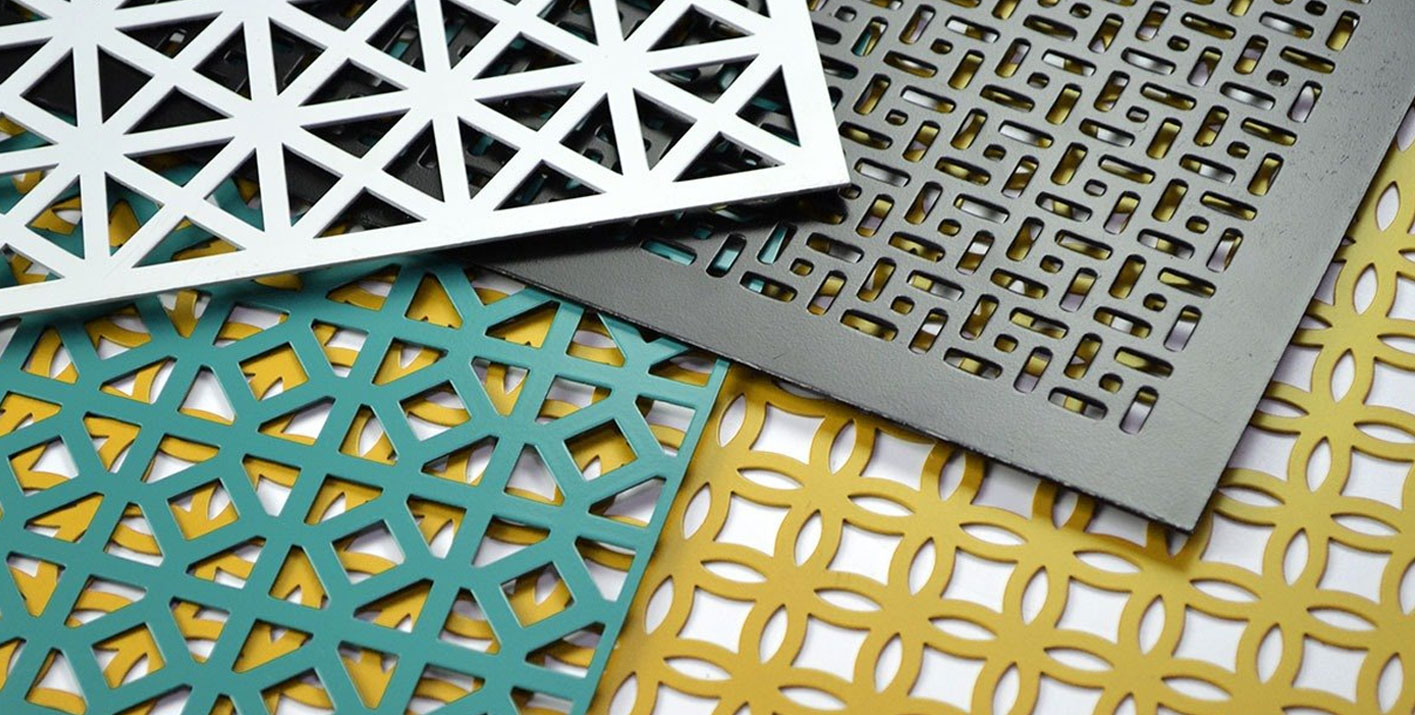Choosing the right perforated sheet can make a significant difference in the success of your project, and that’s where our expertise comes into play. In this blog, we’ll explore the various types of perforated sheets, considerations for selection, and introduce you to Indo German Wire Screen Co., a distinguished name known for providing top-quality perforated sheets.
Understanding Perforated Sheets
Perforated sheets, commonly referred to as hole punching sheets or perforated metal, are versatile materials characterized by a grid of punched holes. These holes can be of various shapes and sizes, strategically placed to serve specific functions. Perforated sheets are available in a wide range of materials, including metals like stainless steel, aluminum, and brass, as well as plastics.
The concept of perforating materials dates back centuries, with early examples found in ancient civilizations like the Egyptians and Greeks. They utilized manual methods to create patterns of holes in materials for various applications. Over time, advancements in technology and machinery led to more precise and efficient perforation processes. Today, perforated sheets are manufactured using cutting-edge techniques, ensuring consistent quality and precision.
Importance and Versatility of Perforated Sheets in Various Industries
Perforated sheets play a pivotal role in a multitude of industries. They are valued for their ability to combine strength and functionality with aesthetic appeal. In architecture, perforated sheets are used for decorative facades, sunshades, and acoustic panels. In industrial settings, they are indispensable for tasks ranging from filtration and screening to airflow management in HVAC systems. The agricultural, automotive, and food processing industries also benefit from the adaptability of perforated sheets, where they contribute to efficiency, safety, and product quality. Their significance across these diverse sectors underscores their status as a foundational material in modern engineering and design.
Types of Perforated Sheet
- Brass Perforated Sheet: Brass perforated sheets are crafted from a durable alloy of copper and zinc. They offer excellent corrosion resistance, making them suitable for outdoor applications. Additionally, brass sheets can be easily fabricated and are often chosen for their aesthetic appeal in architectural and decorative projects.
- Stainless Steel Perforated Sheet: Stainless steel perforated sheets are renowned for their exceptional corrosion resistance, making them ideal for applications in harsh environments. They are widely used in industries such as food processing, chemical processing, and marine engineering due to their durability and hygienic properties.
- Copper Perforated Sheets: Copper perforated sheets are favored for their excellent electrical conductivity and malleability. They find applications in electrical and electronic industries, as well as in architectural projects for their distinctive reddish-brown hue that develops a unique patina over time.
- Monel Perforated Sheets: Monel perforated sheets are composed of a high-strength nickel-copper alloy known for its resistance to corrosion and oxidation. This type of sheet is particularly favored in marine and chemical processing applications where exposure to harsh environments is common.
- Mild Steel Perforated Sheet: Mild steel perforated sheets are characterized by their strength, ease of fabrication, and cost-effectiveness. They are widely used in industries ranging from construction to automotive manufacturing, where durability and structural integrity are paramount.
- Perforated Metal Sheets: Perforated metal sheets encompass a broad category that includes various metals like aluminum, galvanized steel, and more. These sheets are known for their versatility, with applications spanning industries like aerospace, automotive, and architecture. They can be tailored to meet specific requirements in terms of hole pattern, size, and material.
These different types of perforated sheets cater to a wide range of industrial and architectural needs, each offering unique properties that make them suitable for specific applications.
Considerations When Choosing Perforated Sheets
- Hole Patterns and Sizes: Making the Right Selection: Selecting the appropriate hole pattern and size is crucial as it directly affects the functionality of the perforated sheet. Different patterns, such as round, square, slotted, or custom designs, serve specific purposes. Additionally, the size and arrangement of the holes impact factors like airflow, filtration efficiency, and visual aesthetics.
- Material Thickness and Strength Requirements: The material thickness of the perforated sheet must align with the demands of the intended application. Thicker materials provide greater structural integrity and durability, which may be necessary for heavy-duty applications. Conversely, thinner materials are suitable for projects where weight considerations or flexibility are essential.
- Corrosion Resistance: Crucial for Longevity: Considering the environment in which the perforated sheet will be used is vital. Materials with high corrosion resistance, such as stainless steel or specialized alloys like Monel, are imperative for outdoor applications or those exposed to corrosive substances. This ensures the longevity and performance of the perforated sheet over time.
- Environmental and Sustainability Factors: In today’s eco-conscious world, considering the environmental impact of materials is imperative. Opting for materials that are recyclable or made from sustainable sources can contribute to a greener footprint. Additionally, choosing perforated sheets that are produced using environmentally-friendly manufacturing processes aligns with sustainable practices.
By carefully evaluating these factors, you can ensure that the chosen perforated sheets will meet the specific requirements of your project, providing optimal performance, durability, and sustainability.

